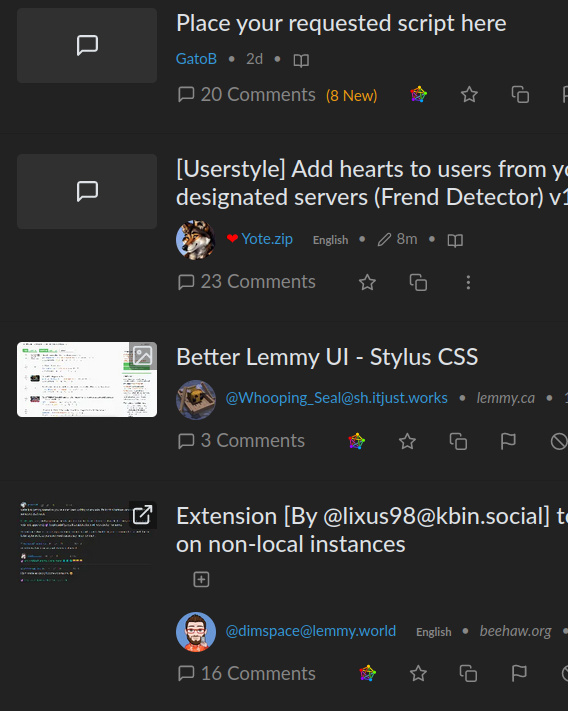Edit: @redyoshi49q@furry.engineer has designed a better solution using only CSS, and this should be used instead of the old script! If you’re reading this page for the first time, ignore this message.
This userstyle adds a red heart next to people that are from your home server, and any other servers that you manually define. Spot your server buddies out in the wild!

Instructions:
-
Install Stylus extension for firefox/chrome
-
“Write new style” in the addon settings
-
Copy paste the CSS code below in
-
Modify the code around line ~11 in order to reflect your homeserver and any additional frendservers that you want to highlight
-
Modify the code around line ~19 to reflect your homeserver
-
(Optional) If you’d like your homeserver buddies to have a different marker, uncomment the various sections around line ~27 through ~50 by removing the /* and */ bits
-
(Optional) Play around with different markers and colors!
CSS/Userstyle: https://gist.github.com/redyoshi49q/f1b2d1da0a8f7536aba1f8c3110d2dd8


Strongly typed languages are definitely my jam. Develop slightly slower, debug 2x less, faster runtime. What’s not to like. Kudos for actually being a web developer - it makes my head hurt. Case in point: me writing all this complicated JS when the problem was cleanly solvable with attribute selectors in CSS. I’m technically fullstack but I mostly stay backend and application-level if I can help it. Web dev has too many options for how to accomplish something, and I never know what the proper answer is. I’m interested to see what general paradigm people will use to interact with lemmy - I feel there has to be a more efficient way than mutation observer. Lemmy’s HTML markup could stand to be more verbose as well - extra classes to hook onto for more precise manipulation.